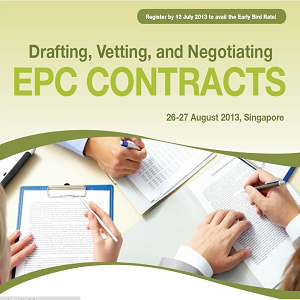Demurrage Masterclass 25-27 September 2013, Dubai, UAE; 23-25 October 2013, Singapore
A successful negotiation of laytime and demurrage can contribute substantially to an organization’s profitability. However if disputes related to them are not managed effectively, can lead to a significant loss by charterers and shipowners and ultimately impact their bottomline.
A successful negotiation of laytime and demurrage can contribute substantially to an organization’s profitability. However if disputes related to them are not managed effectively, can lead to a significant loss by charterers and shipowners and ultimately impact their bottomline.
This comprehensive masterclass provides both an overview and
in-depth discussions of laytime calculations, tanker charter party clauses, and
issues associated with laytime and demurrage. It expands on both the common and
not so common issues associated with demurrage.
Delegates will also learn to minimise their demurrage
exposure and maximise on demurrage collection with reviews of case law that
determines successful demurrage resolution.
This masterclass is packed with practical exercises that
will allow delegates to develop or enhance their demurrage knowledge and skill.
Whether you are new to handling laytime and demurrage matters, seeking a
refresher, or you would like a better understanding of the subject, this masterclass
is for you.
Your expert trainer has been in the oil and shipping
industry for more than 30 years, during which time he has held positions in
procurement, oil trading and tanker operations, supply logistics, refinery
throughput planning, gas field production and marketing, shipbroking, vessel
agency and until 2008 in demurrage and claims management. He has participated
in a number of industry forums and served on North Sea oil and pipeline
management and pricing committees. He started his career with BP holding
positions in procurement, trading and supply logistics and operations and
refinery throughput planning. After 11 years with BP, he left to take up a
position with a Middle East Shipping Agency based in Bahrain, where he jointly
headed up the tanker agency team responsible for Bahrain and neighbouring Saudi
Arabia. Returning to the UK he subsequently held positions in oil trading,
shipbroking and north sea oil exploration and production.
http://demurrage.invidaevents.com





